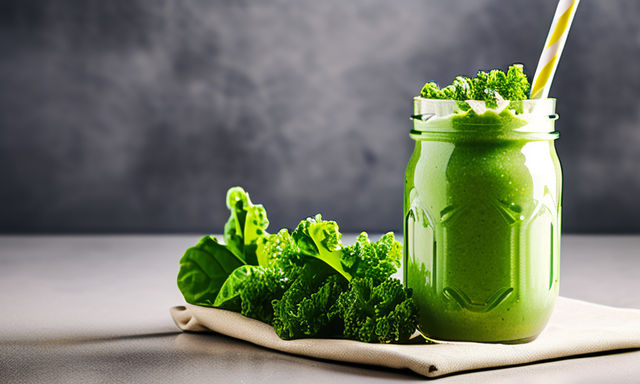Bariatric Surgery Diet: A Comprehensive Guide
Bariatric surgery is a life-altering procedure for individuals battling obesity, offering a tool to achieve significant weight loss and improve health conditions linked to obesity, such as diabetes, hypertension, and sleep apnea. However, the journey doesn't start or end in the operating room; it's a comprehensive lifestyle transformation, with nutrition playing a pivotal role both before and after the surgery. Understanding the dietary adjustments required during these phases is crucial for a successful outcome and long-term well-being.

Pre-Bariatric Surgery Diet: Laying the Groundwork
The weeks leading up to bariatric surgery are pivotal in preparing your body for the procedure and ensuring optimal outcomes. The primary goals of the pre-surgery diet are to reduce body fat, particularly in the liver, and to accustom the body to the post-surgery diet. This phase typically starts 2-3 weeks before the procedure. Here's what this typically involves:
- - Low-Calorie, High-Protein Focus: A diet rich in high-quality protein and low in calories helps preserve muscle tissue while promoting fat loss, particularly around the liver, facilitating a safer surgical procedure.
- - Hydration: Adequate water intake is essential for flushing toxins and supporting overall health.
- - Limited Sugars and Fats: Reducing the intake of sugary and high-fat foods helps decrease liver size and body fat.
- - Nutrient-Rich Foods: Incorporating a variety of fruits, vegetables, and whole grains ensures essential vitamins and minerals are maintained.
- - Portion Control: Smaller, more frequent meals can help adapt to the post-surgery eating pattern.
The Post-Surgery Diet: Nurturing Recovery and Beyond
After bariatric surgery, the diet undergoes several phased changes to promote healing, support weight loss, and transition to a new, healthier eating lifestyle. The post-surgery diet typically progresses through the following stages:
1. Liquid Phase (1-2 weeks post-surgery): Initially, the focus is on clear and sugar-free liquids to keep the body hydrated without irritating the surgical site. Broths, sugar-free gelatin, and decaffeinated beverages are staples during this phase.
2. Pureed Foods Phase (2-4 weeks post-surgery): As healing progresses, the diet can include pureed foods with a smooth, baby-food consistency. Protein-rich foods like lean meats, beans, and soft vegetables ensure adequate nutrient intake.
3. Soft Foods Phase (4-8 weeks post-surgery): Soft, easily chewable foods are introduced, focusing on high-protein, low-fat options. Well-cooked vegetables, soft fruits, and lean proteins like chicken or fish are recommended.
4. Solid Foods Phase: Gradually, more solid foods are incorporated, emphasizing mindful eating, chewing thoroughly, and recognizing satiety cues to avoid overeating and stomach distress.
Introducing the Bariatric Diet 600 kcal Plan (Post-Surgery)
As individuals progress from the pureed foods phase to incorporating soft foods, the Bariatric Diet 600 kcal Plan offers a structured, balanced approach to this critical transition. This 7-day plan is meticulously crafted to support clients in gently reintroducing soft foods, ensuring a balanced intake of nutrients while catering to the new dietary requirements post-surgery.
Highlights of the Bariatric Diet 600 kcal Plan:
- - Nutrient-Dense Soft Foods: Carefully selected to provide essential nutrients without overwhelming the digestive system.
- - Gradual Transition: Designed to bridge the gap between pureed foods and more solid textures, aiding in the adjustment to new eating habits.
- - Focused on Healing: The plan emphasizes foods that support recovery and healing, promoting overall well-being.
Ready to embrace your post-surgery nutritional journey with confidence and ease? Explore the Bariatric Diet 600 kcal Plan (Post-Surgery) and take a pivotal step towards a healthier, more fulfilling lifestyle after bariatric surgery.

Key Considerations for Long-Term Success
Maintaining a healthy diet long-term is key to leveraging the full benefits of bariatric surgery. Here are some crucial tips for long-term dietary success:
- - Protein First: Prioritize protein in every meal to support muscle maintenance and overall recovery.
- - Portion Control: Understanding and adhering to recommended portion sizes is crucial, as the stomach's capacity is significantly reduced post-surgery.
- - Mindful Eating: Eating slowly, chewing thoroughly, and recognizing fullness cues can prevent discomfort and complications.
- - Regular, Balanced Meals: Consistent, nutrient-dense meals help maintain energy levels and prevent nutrient deficiencies.
- - Avoid Empty Calories: Minimizing high-calorie foods with little nutritional value, such as sugary snacks and beverages, is essential for continued weight loss and health maintenance.
- - Hydration: Drinking plenty of water between meals is vital, but avoiding fluids during meals is recommended to prevent overfilling the stomach.
- - Vitamin and Mineral Supplements: Since nutrient absorption can be affected by the surgery, supplements are often necessary to prevent deficiencies.
The Importance of Support and Guidance
Adhering to these dietary guidelines is essential for the success of bariatric surgery, but it's not always straightforward. Regular follow-ups with healthcare providers, including dietitians specialized in bariatric care, are crucial for personalized advice and adjustments based on individual progress and challenges.
Bariatric surgery is more than a medical procedure; it's a journey that demands significant lifestyle changes, particularly in terms of diet. By understanding and embracing the nutritional guidelines before and after surgery, patients can enhance their recovery, maximize weight loss outcomes, and embark on a healthier, more active life.
Disclaimer: This article is for informational purposes only and is not intended to be a substitute for professional medical advice, diagnosis, or treatment. Always seek the advice of your physician or other qualified health providers with any questions you may have regarding a medical condition or dietary adjustments before and after bariatric surgery.
References
1. Bettini S, Belligoli A, Fabris R, Busetto L. Diet approach before and after bariatric surgery. Rev Endocr Metab Disord. 2020 Sep;21(3):297-306. doi: 10.1007/s11154-020-09571-8. Erratum in: Rev Endocr Metab Disord. 2020 Aug 17;: PMID: 32734395; PMCID: PMC7455579.
2. Post Bariatric Surgery Diet & Nutrition | UPMC. (n.d.). UPMC | Life Changing Medicine. https://www.upmc.com/services/bariatrics/surgery-process/post-surgery/diet
3. Auckland Weight Loss Surgery. (2017, May 4). 10 Point Plan - Gastric Sleeve Surgery | Auckland Weight loss Surgery. https://aucklandweightlosssurgery.co.nz/10-point-plan-gastric-sleeve-surgery/
4. Dietary guidelines post bariatric surgery. (2024). University of Iowa Hospitals & Clinics. https://uihc.org/educational-resources/dietary-guidelines-post-bariatric-surgery
5. Life after bariatric surgery. (n.d.). American Society for Metabolic and Bariatric Surgery. https://asmbs.org/patients/life-after-bariatric-surgery/
6. Klapsas M, Hindle A. Patients' Pre and Post-Bariatric Surgery Experience of Dieting Behaviours: Implications for Early Intervention. Obes Surg. 2023 Sep;33(9):2702-2710. doi: 10.1007/s11695-023-06689-x. Epub 2023 Jul 19. PMID: 37468701.
7. Cheung HC, Strodl E, Musial J, MacLaughlin HL, Byrnes A, Lewis CA, Ross LJ. Associations between diet composition, dietary pattern, and weight outcomes after bariatric surgery: a systematic review. Int J Obes (Lond). 2023 Sep;47(9):764-790. doi: 10.1038/s41366-023-01333-1. Epub 2023 Jul 6. PMID: 37407830; PMCID: PMC10439005.
Ready to level-up?
Create meal plans 10x faster, follow up with your clients through our mobile app, and never struggle with meal planning or recipe management again.